Hair-loss/hair-thinning in menopausal women - Looking further than just hormones…..
Feb 1, 2021
Posted by: Monique Parker
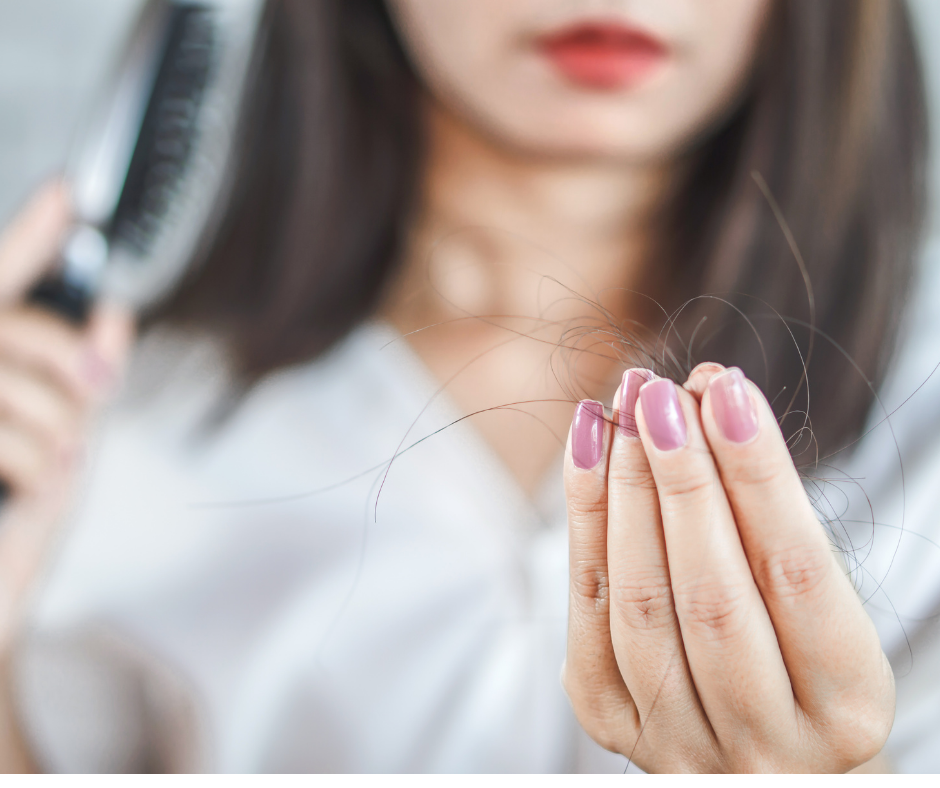
We all treasure our hair. We spend quite a lot of money on hair products, hairdressers etc. and we even use the phrase ‘having a bad hair day’ if our day doesn’t go well. Hair-loss/thinning can be devastating to a person’s self-image and self-confidence.
Hence it is totally understandable that when menopausal/postmenopausal women start to notice hair-loss or hair-thinning, they are often devastated and upset.
Hair-loss and hair-thinning are part of a long list of menopausal symptoms, but although we know that hair growth slows down by the age of 40, and that hair-loss or hair-thinning is quite common in younger women too, it is not a given fact that all menopausal women will have this problem.
But what if you do experience this? Do you just accept it as one of the many menopausal symptoms and try to live with it? There are many different causes of hair-loss/thinning including ageing and genetics, and it is worth investigating which one of these could be yours, as there might a solution.
What type of hair-loss/hair-thinning do you have?
It is important to know what type of hair-loss/thinning you have, as not all hair-loss/thinning is the same. Some women lose small patches, others lose hair all over their head.
If you lose small patches of hair, it is called ‘focal hair-loss’. This type of hair-loss is often the result of an underlying condition such as an underactive thyroid or an auto-immune disease.
If you lose hair all over your head, which is called ‘diffuse hair-loss’ it is more likely caused by hormonal or metabolic issues, or by certain medication such as acne treatment, the pill, or anti-depressants.
Female-pattern hair-loss normally has a frontal hairline that is still normal, if you lose frontal hair that is male-pattern hair-loss or androgenetic alopecia.
Some hair-loss is normal. We lose on average between 50 and 100 hairs a day and given there are about 100,000 hair follicles - sometimes even more - on your scalp, if you lose 100 or so hairs a day that will not make a huge difference in appearance.
Looking at the causes of hair-loss/thinning during and after menopause, hormones are often seen as the big culprit. But there are other issues that could cause your hair problems.
1. Hormones
During and after menopause women produce less oestrogen and progesterone.
Because oestrogen increases the amount of time that hair spends in the anagen or growing phase, less oestrogen means that hair grows more slowly and becomes much thinner.
Menopause can also trigger an increase in the production of androgens (group of male hormones). Androgens shrink hair follicles, resulting in hair loss on the head. For instance, when testosterone is converted to Dihydrotestosterone (DHT) it weakens hair follicles and causes hair to fall out.
And it is not just sex hormones that affect hair, the stress hormone cortisol, when raised during stressful times, can inhibit hair growth. It causes collagen production to fall and loss of collagen can cause hair-loss/thinning, as the hair follicles become brittle.
2. Loss of collagen
As mentioned before, loss of collagen affects the hair follicles.
Apart from cortisol affecting collagen production, there are more factors at play:
- high blood sugar levels can cause hardening and fragmentation of collagen
- ultraviolet radiation from the sun (think of sun-damaged skin)
- genetics are also involved in collagen production.
To reduce collagen breakdown, antioxidants, especially vitamin C, are helpful, as they reduce free radicals that are causing damage.
3. Thyroid
Many symptoms that are experienced during menopause 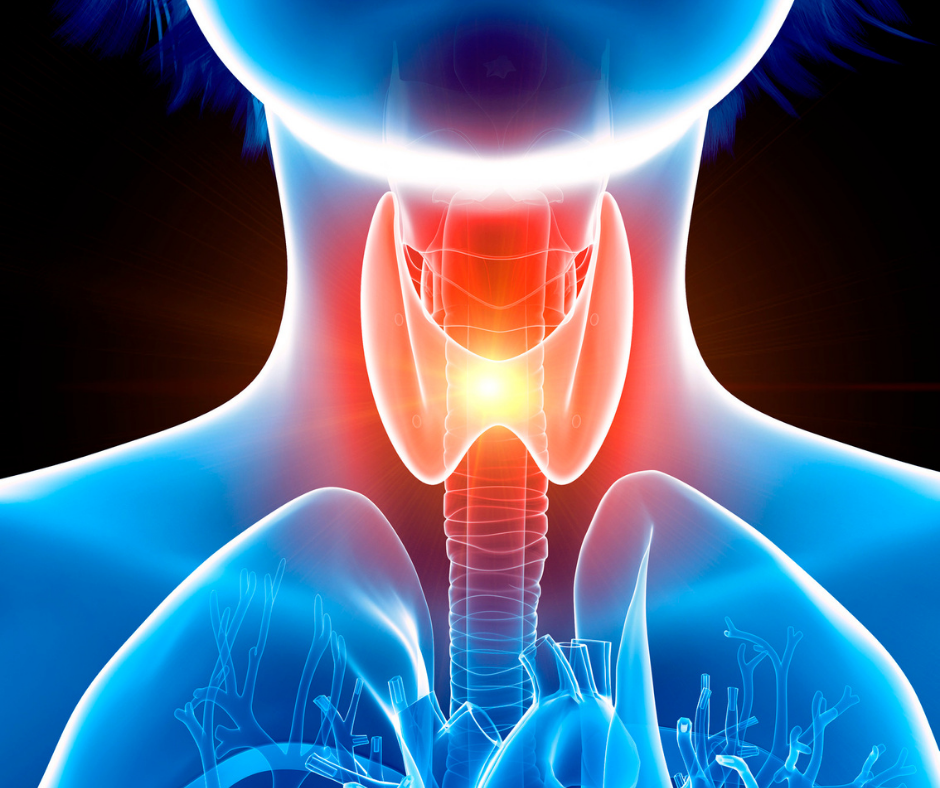 overlap symptoms
overlap symptoms
of a thyroid that is not working properly. Think of poor memory, hair-loss/thinning, mood swings, putting on weight etc.
So, while you are thinking it is the menopause, it could actually be your thyroid that is causing the problem. It is advisable to have a blood test for thyroid function to rule out any issues, especially given the fact that an underactive thyroid can increase or worsen symptoms of menopause.
4. Nutrients
Nutrients have many functions in our body, but when it comes to hair, think of nutrients as the building blocks for repair and growth, and their contribution to regulating chemical processes.
Protein

The root of hair is made up of protein cells. Blood from the blood vessels in your scalp feeds the root, which creates more cells and makes the hair grow.
Each hair is composed of dead, keratinised skin cells, glued together by extracellular proteins. Keratin is the main structural fibrous protein to form hair. To make keratin in the hair shaft, you need protein building blocks (amino acids) such as L-cysteine, L-methionine and L-lysine.
So, you will probably see the importance of enough protein in your diet.
Also interesting to know is that the active form of vitamin B6 (pyridoxal phosphate) increases L-cysteine in keratin.
L-cysteine, L-methionine and L-lysine are essential amino acids. An essential amino acid is a protein building block that your body cannot make, so you need to obtain it from protein-rich foods.
Fat
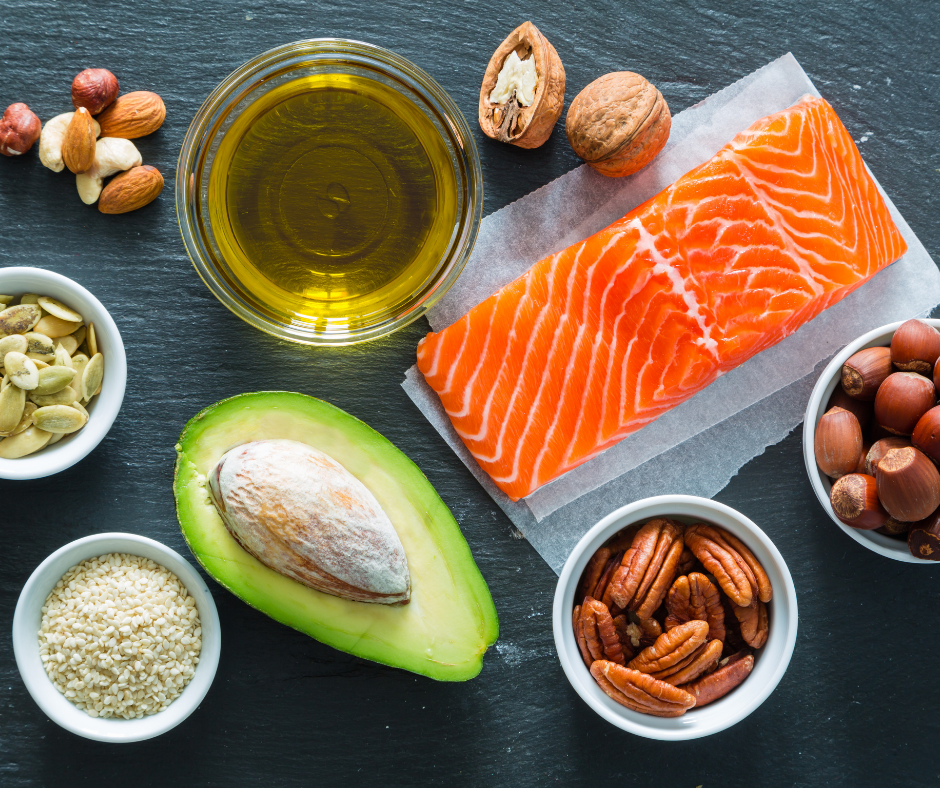
Low fat intake can cause hair loss as it is essential for the formation of hair.
Fats also play an important role in the production of steroid hormones like oestrogen (made from cholesterol).
Research has shown that taking a fish oil supplement significantly reduced hair loss and increased hair growth in women with thinning hair.
Carbohydrates

If the diet is high in simple sugars (highly processed foods, fruit, sugar), it stimulates sebum secretion by sebaceous (oil) glands. Normally sebum, an oily, waxy substance, has a beneficial impact on hair, however if there is too much secretion it will become food for microbes found on the skin of the scalp, which can cause inflammation of the hair follicles and eventually hair-loss.
For new hair to grow out, it is essential to keep the scalp clean. A weekly exfoliating treatment for the scalp to prevent any build up can help.
There is another problem with carbs. A high intake of simple sugars can lead to blood sugar imbalances and problems with insulin ( insulin resistance for instance).
If there is a problem with blood sugar, like hypoglycaemia for example, it is quite likely that there is also low blood pressure and therefore lack of blood flow to the scalp. High blood sugar levels can also damage your blood vessels. Damaged blood vessels may not be able to deliver enough nutrients and oxygen to nourish your hair follicles. This will affect your normal hair growth cycle. This is one of the most common reasons for hair loss.
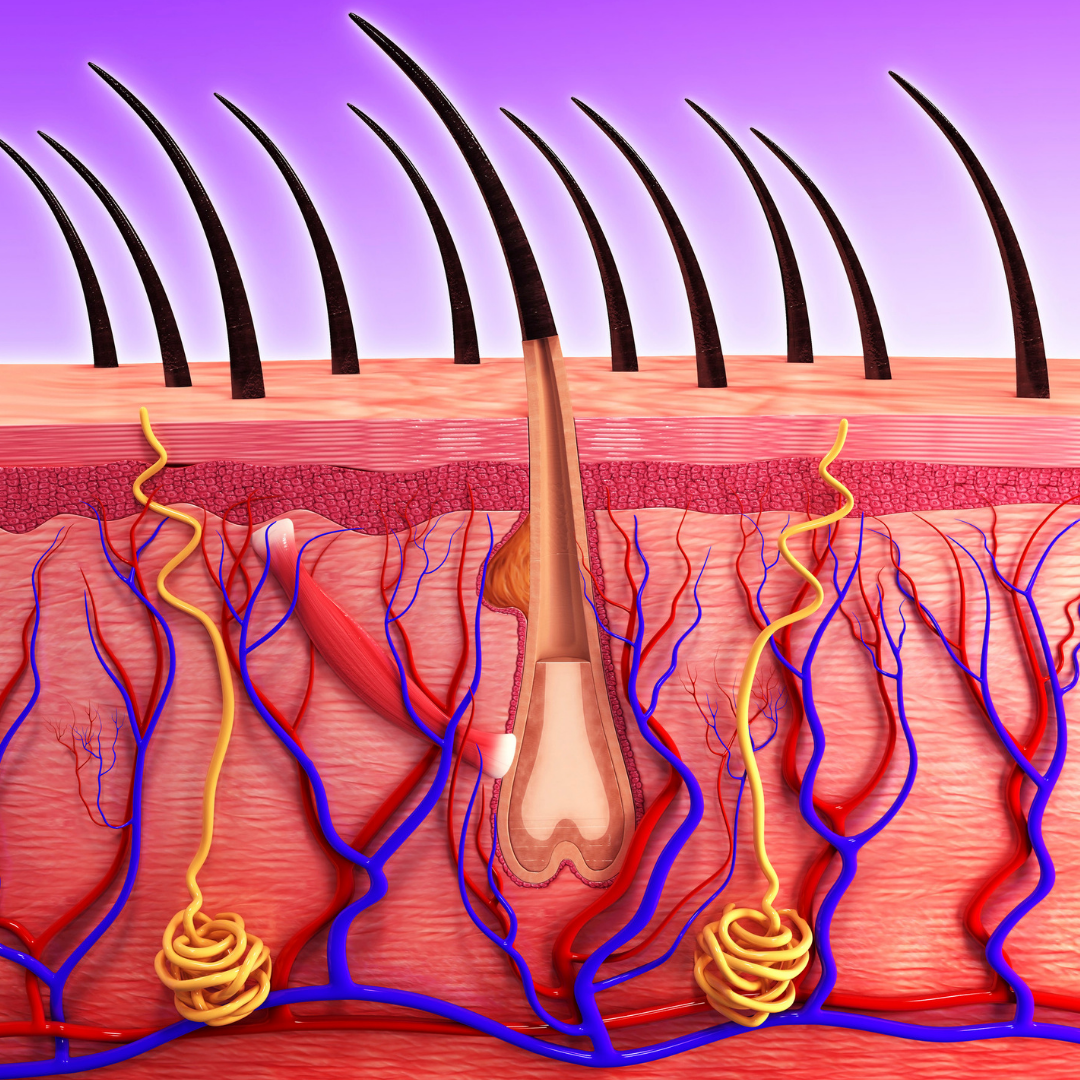
Nutrient Deficiencies
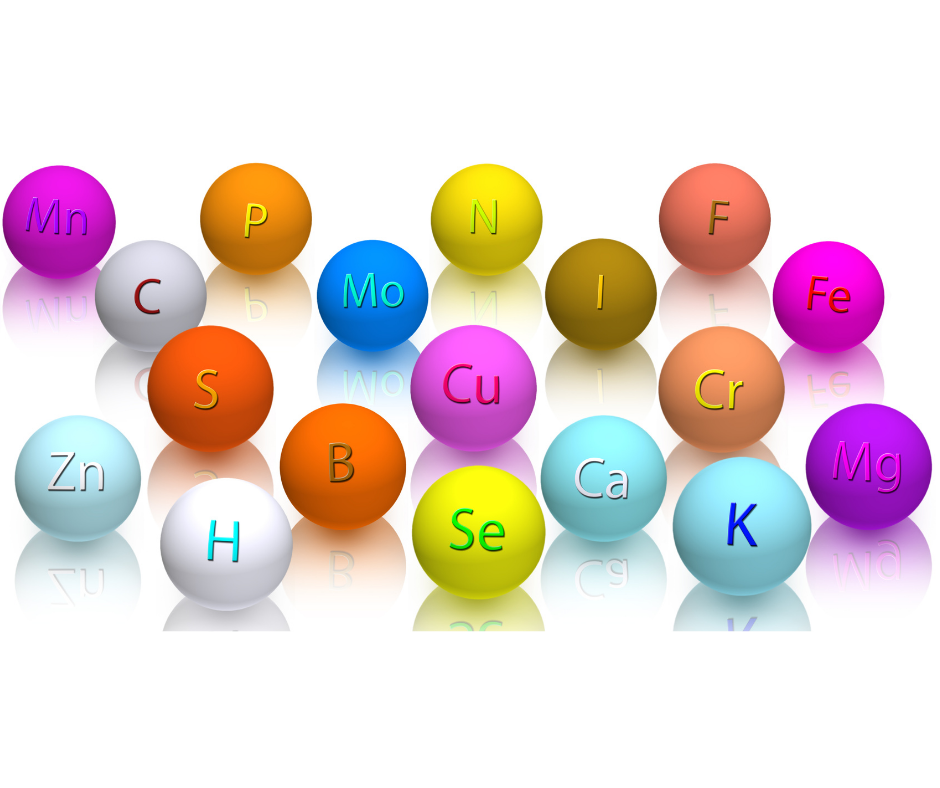
Deficiencies in vitamins and minerals have a big impact on hair, as they have a role to play in growth etc.
A good example is iron. Iron deficiency is the most common nutrient deficiency. There is a link between low body iron stores (ferritin) and diffuse hair loss in women. But although not all scientists agree that iron deficiency could be causally linked to hair-loss, according to some research, hair follicle cells can be sensitive to lower levels of iron and may not be able to grow new cells as effectively when iron stores are low.
It does make sense though, when you think about the fact that iron plays a crucial role in making haemoglobin, a protein in red blood cells that carries oxygen to cells. In my view, checking iron levels could be helpful (full iron panel) to rule out any issues.
Vitamins and minerals that are important for hair: vitamins A, B, C, D, and minerals zinc, iron, copper, selenium, silica, magnesium and calcium.
What can cause nutrient deficiencies:
a. Malabsorption can cause nutrient deficiency. Disease or medication can impair absorption. This means that you could have the healthiest diet, but still be deficient in nutrients. Think of lactose intolerance, coeliac disease, parasites, low stomach acid, leaky gut etc.
b. Lack in diet - when you are just not getting the nutrients, because they are missing or low in your diet. I often see this in practice when it concerns protein.
5. Stress
Hair-loss/thinning could be linked to extremely stressful life events such as the loss of a loved-one or divorce. Think of hair-damaging pro-inflammatory effects and the effect of stress on blood sugar levels.
6. Gluten
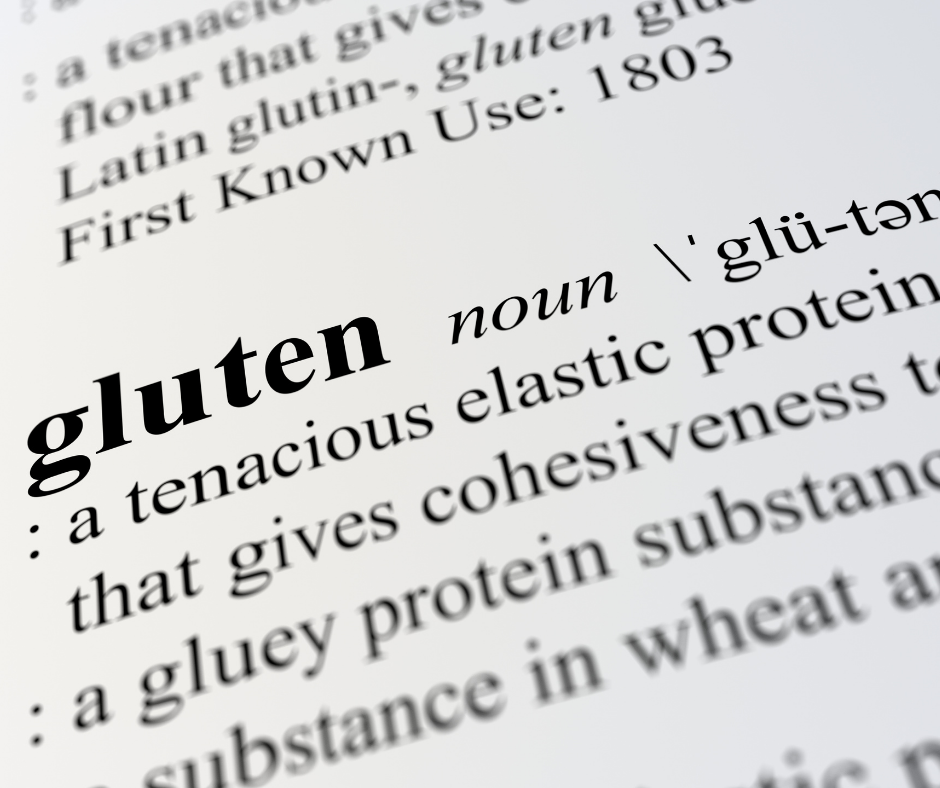
Antibodies to gliadin (one of the main proteins in gluten) can lead to cross-reacting antibodies that attack the hair follicles. This is an auto-immune issue.
Gluten can also cause damage of the intestinal lining, leading to malabsorption of nutrients.
7. Hair treatment
Hair dryers and straighteners can weaken your hair and cause hair-loss. Also, chemicals like chlorine
from the swimming pool, or the ones in hair dye or perm treatment, can negatively affect your scalp and hair.
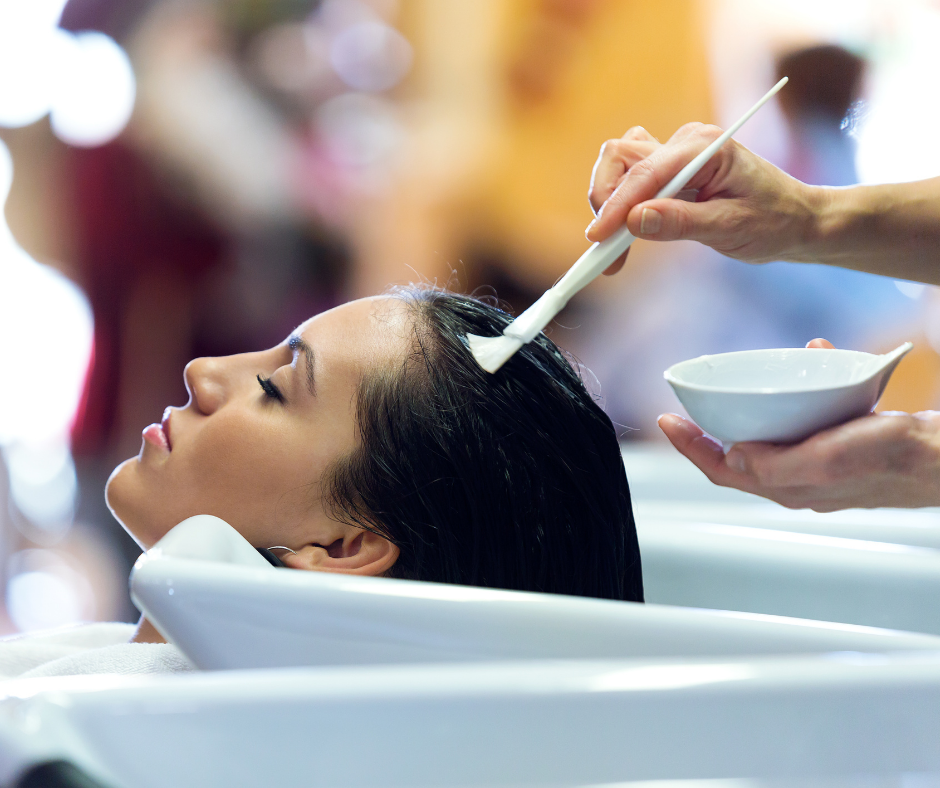
If you are experiencing hair-loss/thinning and are being told it is simply a symptom of the menopause, consider looking into any of the other causes. As a nutritional therapist I can help women investigate the possible causes. If you are interested, do contact me for a free 15 minute-telephone consultation.
REFERENCES
Ablon G. (2015). A 3-month, randomized, double-blind, placebo-controlled study evaluating the ability of an extra-strength marine protein supplement to promote hair growth and decrease shedding in women with self-perceived thinning hair. Dermatology research and practice, 2015, 841570.
https://www.ncbi.nlm.nih.gov/pmc/articles/PMC4389977/
Almohanna, H et al (2019). The Role of Vitamins and Minerals in Hair Loss: A Review. Dermatology and therapy, 9(1), 51–70.
https://www.ncbi.nlm.nih.gov/pmc/articles/PMC6380979/
Aronson, D & Rayfield, E (2002) How hyperglycemia promotes atherosclerosis: molecular mechanisms. Cardiovasc Diabetol 1, 1
https://cardiab.biomedcentral.com/articles/10.1186/1475-2840-1-1
Badawy A, State O & Sherief S (2007) Can thyroid dysfunction explicate severe menopausal symptoms?, Journal of Obstetrics and Gynaecology, 27:5, 503-505.
https://pubmed.ncbi.nlm.nih.gov/17701801/
Hadshiew I et al (2004), Burden of Hair Loss: Stress and the Underestimated Psychosocial Impact of Telogen Effluvium and Androgenetic Alopecia. Journal of Investigative Dermatology, Volume 123, Issue 3, September 2004, Pages 455-457.
https://pubmed.ncbi.nlm.nih.gov/15304082/
Mubki T et al (2014), Evaluation and diagnosis of the hair loss patient: part I. History and clinical examination. J Am Acad Dermatol. 71(3):415.e1-415.e15.
https://pubmed.ncbi.nlm.nih.gov/25128118/
Ramos, P & Miot, H (2015), Female Pattern Hair Loss: a clinical and pathophysiological review. An Bras Dermatol, 90(4): p. 529-43.
https://www.ncbi.nlm.nih.gov/pmc/articles/PMC4560543/
Thom, E (2016), Stress and the Hair Growth Cycle: Cortisol-Induced Hair Growth Disruption. J Drugs Dermatol, 15(8): p. 1001-4.
https://pubmed.ncbi.nlm.nih.gov/27538002/
Trost, L et al (2006), The diagnosis and treatment of iron deficiency and its potential relationship to hair loss. J Am Acad Dermatol, 54(5): p. 824-44.
https://pubmed.ncbi.nlm.nih.gov/16635664/
Yang, F et al (2014). The structure of people's hair. PeerJ, 2, e619.
https://www.ncbi.nlm.nih.gov/pmc/articles/PMC4201279/






